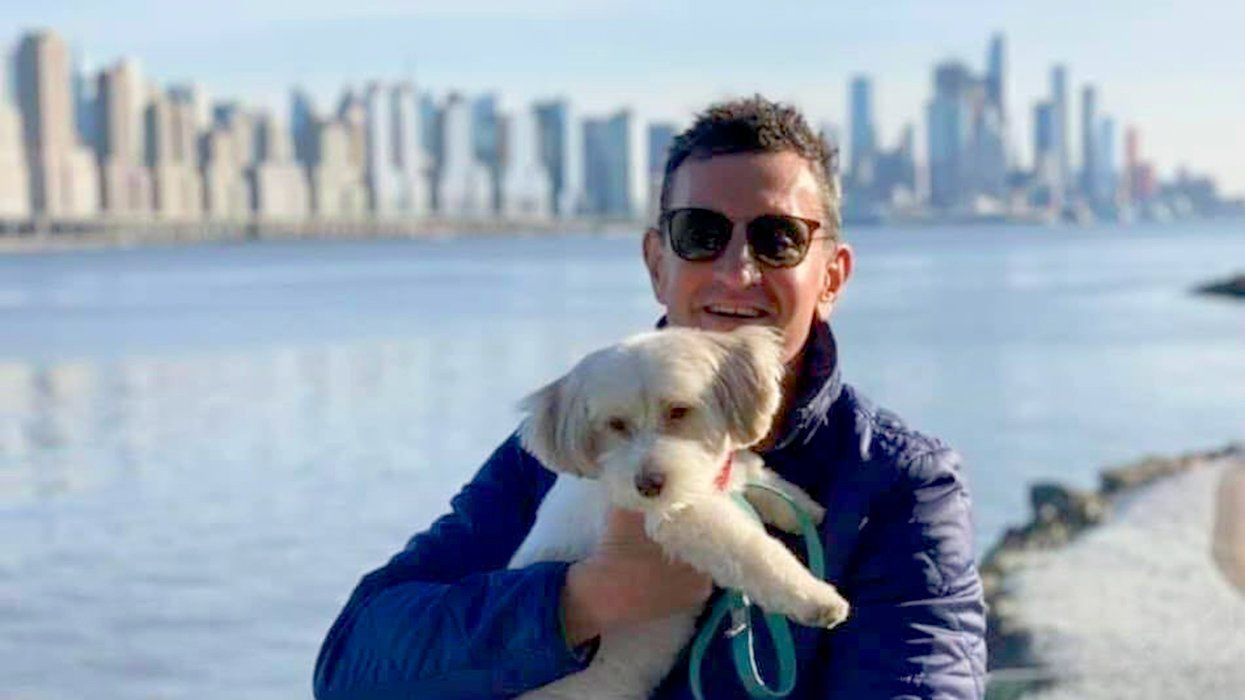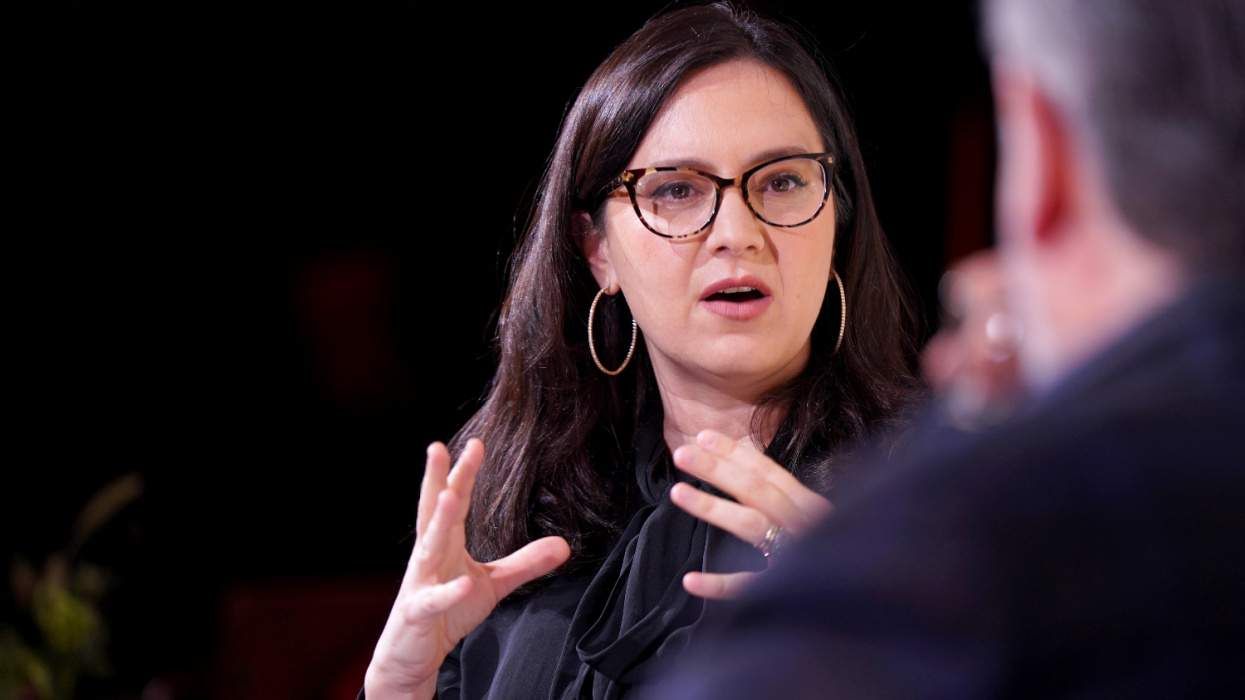When my brother, sister, and I were growing up, we weren't allowed to have any pets. God forbid that it might mess up my mom’s house.
We found a sick bird in our backyard once, and we tried to nurse it back to health by feeding it spaghetti — thinking the bird would think it was worms. I don’t have to tell you what happened to our only, fleeting pet. After that, I used to joke, my brother Jim was our pet.
During the pandemic, my partner and I decided to adopt a stray dog from Puerto Rico. He clicked on a picture of Freddy, who looked worn down, sad, and unkempt. To be honest, I wasn’t so sure I wanted a dog. I didn’t want all that responsibility. I was meh about Freddy; nevertheless, we went through with it and picked him up at LaGuardia Airport after his long flight from San Juan.
It was one of the best days of my life.
Freddy has been a godsend. While my partner was in the midst of a residency in New England on his way to becoming a doctor, Freddy and I have spent the last three years alone together. I don’t know what I would do without him. He is the most perfectly well-behaved dog, and he’s such a happy one. But his happiness pales in comparison to how happy he has made me. He is my constant companion. My constant shadow. My constant source of optimism.
And I know, based on everything I hear, and see on social media, I am not the only one who loves my dog unconditionally.
For many gay folks, dogs aren’t just pets; they’re companions who embody unconditional love, loyalty, and a sense of belonging. There’s something magical about the way a dog can mirror our emotions. Freddy really knows when I’m happy, sad, and at times, angry.
In a world that is filled with anger and can often feel unpredictable, dogs provide a steady presence, a kind of emotional anchor that keeps us grounded. Freddy has been that way for me. After I attempted suicide in December of 2021, Freddy kept an eye on me and helped my navigate my way back to happiness.
The bond between queer people and their dogs (or any pet), like Freddy and mine, is often rooted in shared experiences of searching for acceptance and connection. Much like their human counterparts, dogs have an innate ability to sense when they’re truly loved and valued, and they respond with boundless affection and trust. Freddy always lets us know how grateful he is that he’s no longer roaming the streets.
In many ways, Freddy is a lot like me. He loves the sun and warmth, hates snow, rain, cold and the small talk of strangers, and can’t get enough of cheese and blueberries. When Freddy looks into my eyes, I sense the love, and I know he sees that in my eyes as well. Actually, I know he feels the love by the endless licking of my face.
Freddy has become my best friend. I quit drinking almost three years ago, and at first, I avoided all social interactions — both to avoid drinking and to try to get my mental health back on track. So I relied on Freddy to keep me company. Wild Friday nights turned into me playing fetch with Freddy’s stuffed giraffe for hours and cuddling on the couch with him watching TV. I love my Friday nights now.
I used to look side-eyed at people who worshiped their dogs. Not anymore. Now, when I see someone walking their dog, there’s an unspoken glance at each other that says, “Yes, I love my dog too.” It’s National Dog Day today, and I’m going to make sure Freddy gets extra treats, a longer walk, and some quality time with his giraffe.
Voices is dedicated to featuring a wide range of inspiring personal stories and impactful opinions from the LGBTQ+ community and its allies. Visit Advocate.com/submit to learn more about submission guidelines. Views expressed in Voices stories are those of the guest writers, columnists, and editors, and do not directly represent the views of The Advocate or our parent company, equalpride.
If you or someone you know needs mental health resources and support, please call, text, or chat with the 988 Suicide & Crisis Lifeline or visit 988lifeline.org for 24/7 access to free and confidential services. Trans Lifeline, designed for transgender or gender-nonconforming people, can be reached at (877) 565-8860. The lifeline also provides resources to help with other crises, such as domestic violence situations. The Trevor Project Lifeline, for LGBTQ+ youth (ages 24 and younger), can be reached at (866) 488-7386. Users can also access chat services at TheTrevorProject.org/Help or text START to 678678.
















